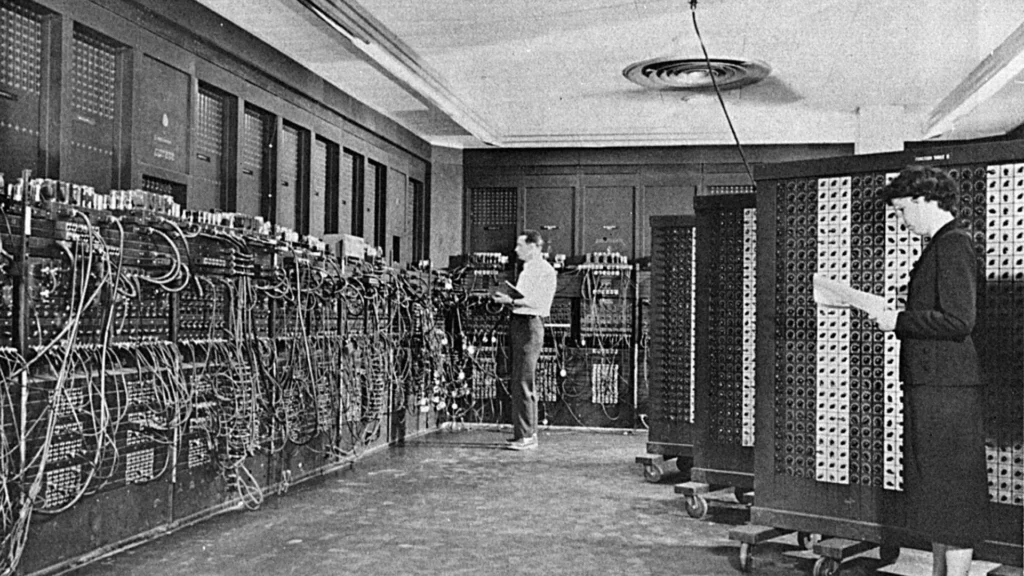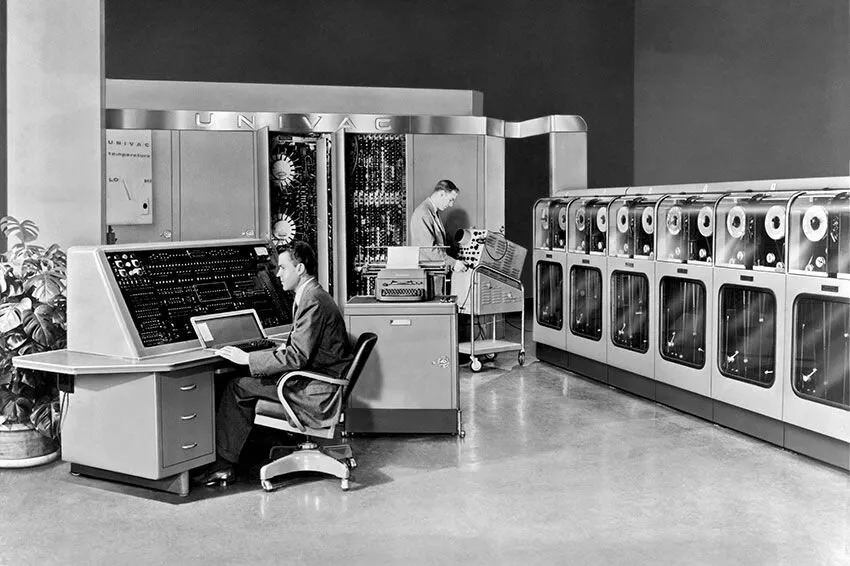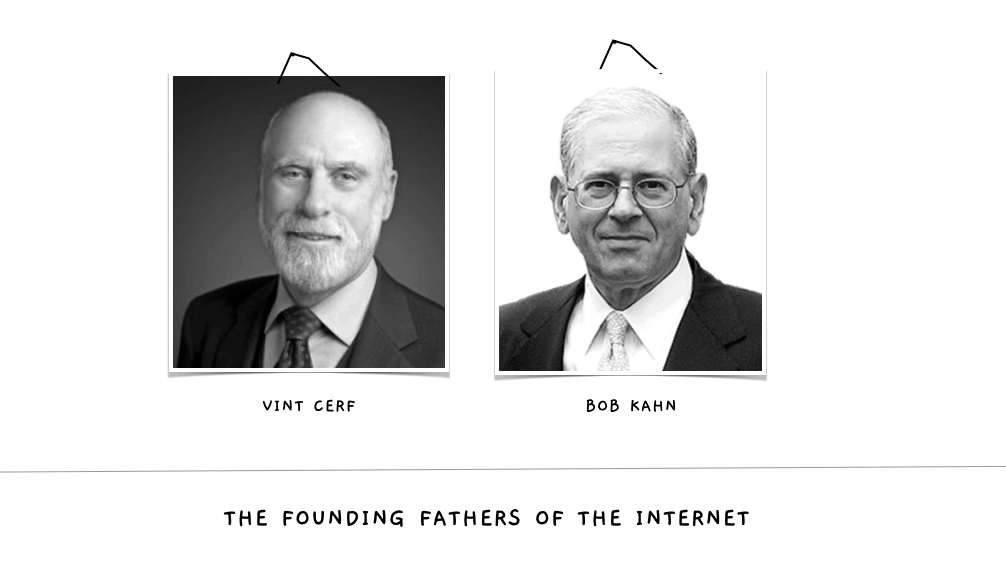Who Invented the Internet: The internet has become an indispensable part of modern life, revolutionizing communication, commerce, and countless other aspects of society. But who can lay claim to the title of its inventor? The story of the internet’s creation is a complex and multifaceted one, involving numerous contributors and innovations over several decades.
What most of us think of as the Internet is really just the pretty face of the operation. Browser windows, websites, URLs, and search bars. But the real Internet, the brain behind the information superhighway. Is an intricate set of protocols and rules that someone had to develop before we could get to the World Wide Web. Computer scientists Vinton Cerf and Bob Kahn are credited with inventing. The Internet communication protocols we use today and the system referred to as the Internet.
History
Before the current iteration of the Internet. Long-distance networking between computers was first accomplished in a 1969 experiment by two research teams at UCLA and Stanford. Though the system crashed during the initial attempt to log in to the neighboring computer, the researchers, led by Leonard Kleinrock, succeeded in creating the first two-node network. The experiment was also the first test of “packet switching,” a method of transferring data between two computer systems. Packet switching separates information into smaller “packets” of data. That are then transported across multiple different channels and reassembled at their destination. The packet-switching method is still the basis of data transfer today. When you send an email to someone, instead of needing to establish a connection with the recipient before you send. The email is broken up into packets and can be read once all of the packets have been reassembled and received.
Who was first invented internet?
Who Invented the Internet: As you might expect for a technology so expansive and ever-changing, it is impossible to credit the invention of the internet to a single person. The internet was the work of dozens of pioneering scientists, programmers and engineers who each developed new features and technologies that eventually merged to become the “information superhighway” we know today.
Long before the technology existed to actually build the internet, many scientists had already anticipated the existence of worldwide networks of information. Nikola Tesla toyed with the idea of a “world wireless system” in the early 1900s, and visionary thinkers like Paul Otlet and Vannevar Bush conceived of mechanized, searchable storage systems of books and media in the 1930s and 1940s.
Still, the first practical schematics for the internet would not arrive until the early 1960s, when MIT’s J.C.R. Licklider popularized the idea of an “Intergalactic Network” of computers. Shortly thereafter, computer scientists developed the concept of “packet switching,” a method for effectively transmitting electronic data that would later become one of the major building blocks of the internet.
How did the internet begin?
A lot of people developed and contributed to the internet that we know today. Like many of the technologies that we take for granted nowadays, it got its start during the Cold War as the U.S. government sought to gain an edge over its bitter rival, the Soviet Union. In 1957 the USSR successfully launched the world’s first satellite into orbit, a move that is widely seen as marking the start of an era in which these two global powers battled for technological supremacy. This was reflected in the foundation of new U.S. government programs such as the National Aeronautics and Space Administration (NASA) – as well as a key player in our story, the U.S. Department of Defense’s Advanced Research Projects Agency (ARPA).
This highly charged atmosphere generated the first steps on our internet history timeline. ARPA started working on one of the earliest versions of the internet – the Advanced Research Projects Agency Network (ARPANET) – as a way to let its computers connect to each other. We may take this networking capability for granted today, but keep in mind that early computers were huge and immobile, and information was stored on magnetic tapes. Sending data to another computer actually involved a trip to the post office!

Who initially developed what is now known as the internet?
A first seed in the development of the internet was planted in 1962 when ARPA scientist J.C.R. Licklider outlined a vision of an “intergalactic network” that was safe from enemy attack. But it wasn’t until the middle of that decade, under Robert Taylor, that plans were laid to make the dream of an interconnected network system come true. The agency also brought in Larry Roberts from MIT in January of 1967 to get the ball rolling. Another important name to be mentioned here is Leonard Kleinrock, who incorporated the mathematical theory that underpinned the technology, known as “packet switching.” Technology firm Bolt Beranek & Newman, who you may also remember for their role in developing electronic mail, was awarded the contract to build ARPANET.
Despite these claims to fame, none of the early visionaries behind ARPANET are now household names. This is because additional networks were also developed in an attempt to further data communication and computer networking. And as multiple networks of computers emerged, something was required to allow them to communicate with each other. Enter Vinton Cerf and Robert Kahn.
World Wide Web: The internet is made public
You may think that this gives Vinton Cerf and Robert Kahn a lock on the title “Inventor of the Internet.” However, there is another strong contender. As already discussed, the 1980s saw multiple computer networks (e.g. in military installations, universities, corporations, etc.) finally able to connect and communicate with one another. However, the internet was still not accessible to the general public. This was first made possible by the creation of the World Wide Web (WWW) in 1989.

Gopher vs. Web
One interesting side note: if internet history had developed slightly differently, we might all be “burrowing like gophers” instead of “surfing the web.” That’s because a team at the University of Minnesota (UMN) under Mark McCahill developed a protocol for distributing and retrieving documents on IP networks called the Gopher system, releasing it in 1991. (The gopher is the UMN mascot.) Even though the Gopher system had a slight head start over the World Wide Web and soon gained users, it fizzled out by the late 1990s. This was at least partly because UMN starting charging licensing fees in 1993, while CERN remained committed to never charging royalties for the WWW.
History of the internet: Timeline
Here are five important milestones in the development of the internet:
1965: The invention of “packet switching,” a way of sending information from one computer to another. This allows two computers at MIT’s Lincoln Lab to communicate with each other for the first time.
1969: UCLA, Stanford Research Institute (SRI), UCSB, and University of Utah connect through. The ARPANET and the first message, “LOGIN,” is sent to the SRI computer. Due to a system crash, only the first two letters “LO” are transmitted.
1974: “Fathers of the Internet” Vinton Cerf and Robert Kahn publish. The details of their Transmission Control Protocol (TCP), which enables two computers to exchange data streams. They go on to develop the Internet Protocol, or IP.
1983: The Domain Name System (DNS) sets up a standard system of domain names (e.g., with the endings .com, .edu, .gov, .net, .org, etc.) for naming websites. These names are easier to remember than the numeric designations of IP addresses (e.g., 163.496.631.75).
1989: Working at CERN, Tim Berners-Lee creates the World Wide Web and develops. The HyperText Markup Language (HTML), the basic building block of web content
The World Wide Web:
While ARPANET laid the groundwork for the internet. It was the invention of the World Wide Web that truly revolutionized how information is accessed and shared online. In 1989, British computer scientist Tim Berners-Lee proposed a system for organizing and accessing information on the internet using hypertext. This system, which he called the World Wide Web. Introduced concepts such as URLs, HTML, and HTTP, laying the foundation for the modern web.
Commercialization and Global Expansion:
Throughout the 1990s, the internet experienced explosive growth. As it transitioned from a government-funded research network to a global platform for commerce, communication, and collaboration. The development of web browsers such as Netscape Navigator and Internet Explorer made. The internet more accessible to the general public, fueling its widespread adoption.
Who Invented the Internet?
The question of Who Invented the Internet is not easily answered. As it was the result of collective efforts spanning decades and involving contributions from countless individuals and organizations. While figures like Tim Berners-Lee are often credited with major breakthroughs. It’s important to recognize that the internet is the product of collaboration and innovation on a global scale.
Who Invented the Internet In conclusion, the internet is a testament to human ingenuity and cooperation, continually evolving to meet. The ever-changing needs of society. While its origins may be shrouded in complexity, one thing is clear. The internet has forever changed the way we live, work, and interact with the world around us.



